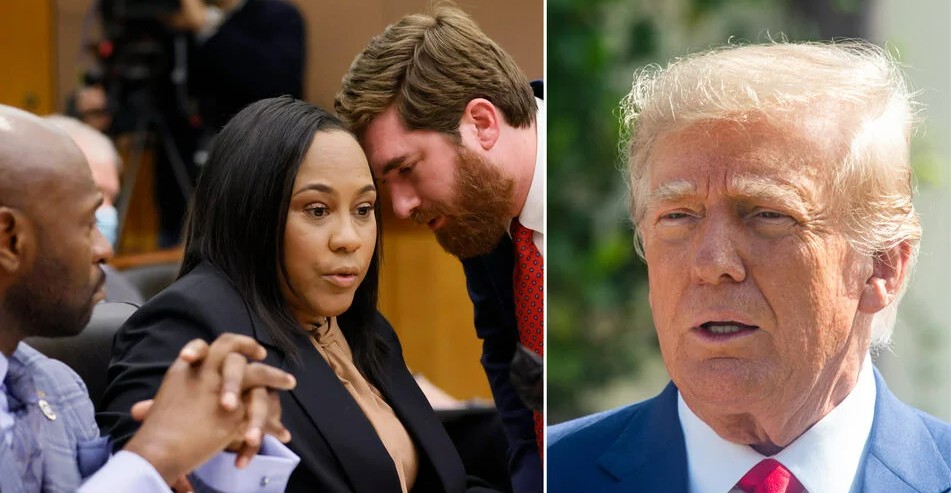OPINION: This article may contain commentary which reflects the author's opinion.
The Fulton County, Georgia, district attorney who has been investigating former President Donald Trump over various allegations related to the aftermath of the 2020 election may be preparing to announce whether she will actually charge him by August.
According to a letter obtained by The New York Times, DA Fani Willis has reportedly told her staff to work remotely from July 31 through August 18 while also asking judges in a downtown Atlanta courthouse not to schedule any trials between August 7 and August 14.
“The moves suggest that [Willis] is expecting a grand jury to unseal indictments during that time period. Ms. Willis outlined the remote work plan and made the request to judges in a letter sent on Thursday to 21 Fulton County officials, including the chief county judge, Ural Glanville, and the sheriff, Pat Labat,” the Times reported.
Willis, who has already requested that the FBI help provide security in and around the courthouse, noted in the letter: “Thank you for your consideration and assistance in keeping the Fulton County Judicial Complex safe during this time.”
The Times added:
Ms. Willis had said in a previous letter that any charges related to the Trump investigation would come in the grand jury term that runs from July 11 to Sept. 1. Her letter on Thursday appears to offer more specificity on timing.
Her timetable, however, has already been pushed back as she has sought to hammer out cooperation deals with some potential defendants.
In an effort to derail the case, Trump’s legal team has submitted a motion in March with the intention of invalidating a significant portion of the collected evidence and requesting the removal of Willis from the case even before any charges are formally brought forward, the Times noted.
For over two years, Willis’s office has been conducting an extensive investigation into potential illegal interference in the 2020 Georgia election by the former president and his associates, as the election results showed a narrow victory for President Joe Biden.
A special grand jury has carefully examined the evidence for seven months, the Times said, and subsequently made recommendations for indictments against over a dozen individuals. In a revealing interview with The New York Times in February, the forewoman of the grand jury strongly implied that Trump was among those individuals recommended for indictment.
The forewoman, Emily Kohrs, 30, provided an insider’s perspective into the investigation of the special grand jury during a series of media interviews in February.
Although Kohrs did not reveal the identity of any individuals who may have been recommended for charges, nor did she provide details about the alleged crimes, she did suggest to NBC News that the special grand jury’s recommendations for indictments are “not a short list” and hinted that former President Donald Trump “might” be included. She even said she thought it would have been “really cool” to subpoena and swear in Trump with a smile.
After those interviews, the jurist who oversaw the case, Fulton County Superior Court Judge Robert McBurney, said Kohrs’ revelations may have helped Trump.
“They cannot discuss their deliberations,” McBurney said, referencing instructions he gave members of the grand jury regarding discussions with the media and others involving their work.
“So the question becomes what deliberations are, and I explained that would be the discussions they had amongst themselves when it was just the grand jurors in the room … when they were discussing what do we do with what we’ve learned,” he continued.
McBurney stated that grand jurors are allowed to discuss the events that took place in the grand jury room but only in the presence of a prosecutor or a witness.
“That’s not deliberations,” the judge said. “That’s presentation. And they’re not prohibited from talking about that, nor are they prohibited from talking about the fruit of their deliberations, which would be the final report.
